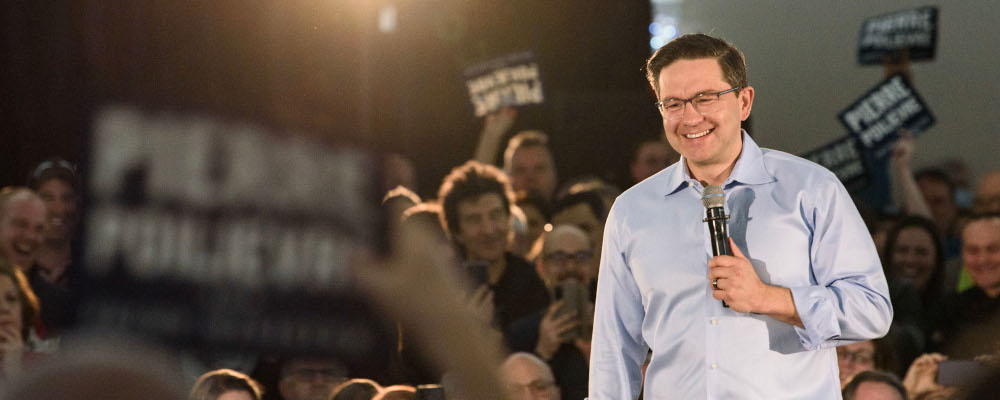On May 2, 2011, Stephen Harper and the Conservatives won a majority government. That was what happened, but in the days following election day, it wasn’t really the dominant narrative. Instead, commentary tended to focus on related phenomena. There had been an “orange wave”, with the NDP scooping up dozens of seats in Quebec and forming the official opposition in Parliament—their leader Jack Layton was a star. The Liberals had cratered, plummeting to only 34 seats in the House of Commons—their leader Michael Ignatieff was a dud.
Sure, there was passing reference to the success of the Conservatives. After all, Stephen Harper had converted their minority into a majority and would have four more solid years to govern, virtually unopposed to start. But the overarching takeaway was not that the Conservatives had built meaningful public support for an ambitious political agenda and delivered on it with a resounding electoral victory. It was almost as though Conservatives landed a majority government by accident, through a combination of NDP success, Liberal foibles, and good luck. It didn’t help that Conservative voters tended to be quieter and that if you ran in certain circles, the kinds of circles analysts, pundits, and other public commenters live in, they were almost impossible to find. It was hard to track down Conservative voters, and even harder to understand where they were coming from.
I was reminded of 2011’s analytical incuriosity over the past couple weeks as various serious pollsters released data showing Pierre Poilievre’s Conservatives with a nine-ish percentage point lead. A number of analysts have sought to explain what’s going on, focusing on a few different factors, since it seems clear that no one big event is what has shifted opinion. People are finally growing tired of the Liberals, they say—it’s just taken a long time. People are finally feeling the negative impacts of inflation, they say—it’s just…taken a long time. People are really starting to dislike Trudeau, they say—it’s just…well you get the point. Where commenters do address the leader and the party experiencing favourability gains, they bend over backward to avoid acknowledging his appeal. In fact, they inexplicably jump to analyzing areas he’s struggling, describing what a challenge it will be for such a radical, scary figure to actually convert his opponents’ losses into his own gains. This despite most modeling showing that Pierre Poilievre and the Conservative’s popular vote share means they would win a majority of seats were the election called today.
You wouldn’t know it from last week’s analysis, but something else happened recently in Canadian politics—something rather major. Almost a year ago, Conservatives elected a new leader in Pierre Poilievre. Is it possible that’s had some effect? Is it possible people who can’t afford a home aren’t just frustrated the prime minister said the problem is not his responsibility, but that they think Pierre Poilievre would fix it? Is it possible they’re not only ticked off about the ever-increasing carbon tax but also now convinced the Conservatives would scrap it? Is it possible that since Poilievre’s been talking about inflation for literally years longer than anyone else, voters think he might be the guy who would bring spending in line and fix it? Is it possible Poilievre’s plan not to focus narrowly on mythical LPC/CPC vote switchers as virtually every analyst suggested he should, but to expand his voter universe by targeting NDP voters, LPC voters, PPC voters, lapsed CPC voters, and non-voters by focusing on defending fundamental freedoms, producing more goods in Canada, and improving the cost of living is…working?
We don’t have to speculate as to whether Poilievre and the Conservatives are succeeding (instead of the Liberals merely failing). There is a serious third party in Canada in the NDP. If the movement in the polls had so little to do with Poilievre’s political success, surely, they would be the primary beneficiary. Indeed, we do have a counterfactual in Quebec, where waning Liberal popularity has benefited the Bloc Quebecois. Across the rest of Canada, including in Atlantic provinces, Ontario, and British Columbia, the Conservative’s message is resonating. So why the reluctance to concede this point? What explains this unwillingness on the part of otherwise smart analysts to explore Conservative political success? Why side-step reasonably clear explanations, groping instead for any way to rationalize what, to them, is seemingly irrational?

Because when you don’t know anyone who votes Conservative, it’s hard to put yourself in the shoes of someone who did or plans to. Understanding requires empathy and empathy is hard—particularly as our polarization and online thought bubbles mean people of different culture war tribes and political persuasions barely interact. This might be fine if our thought-leading institutions were populated with a diversity of viewpoints, but they’re not. Our analysts tend to be liberal, progressive elites who socialize with other liberal, progressive elites. There’s nothing wrong with being a liberal, progressive elite, many of them are among my dearest friends. But when you’re in the business of explaining political outcomes, it helps if you know people to whom the front-runner is appealing. At least it’s helpful if you have any interest in trying to understand what’s going on.
Political public opinion shifts for all kinds of reasons, and winning seats in the House of Commons is a zero-sum game. By definition, for one party to be winning, another party needs to be losing. But when it comes to analyzing the factors contributing to Conservative political success, our commentariat has a massive blind spot.
The good news for Conservatives is this is a sure sign that Liberals (and their ideological brethren in the commentariat) are stricken with their infamous kryptonite. Only arrogance, the kind for which our country’s self-described natural governing party is famous, can explain the unseriousness with which they’re confronting the strongest competitor they’ve faced in a decade. Only arrogance can explain why they’ve opted not to try to define Pierre Poilievre in the public consciousness before he’s had the chance to define himself. Only arrogance can explain why our country’s analysts refuse to entertain the notion that the Conservatives might just have a plan and that it might just be working. Historically, when Liberal arrogance has peaked, Conservative electoral success has followed.
Recommended for You

‘Our role is to ask uncomfortable questions’: The Full Press on why transgender issues are the third rail of Canadian journalism

Need to Know: Mark Carney’s digital services tax disaster

Theo Argitis: Carney is dismantling Trudeau’s tax legacy. How will he pay for his plan?

Kirk LaPointe: B.C.’s ferry fiasco is a perfectly Canadian controversy




